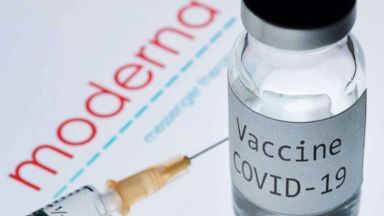CAMBRIDGE, Mass.– Moderna, Inc. (Nasdaq: MRNA), a biotechnology company pioneering messenger RNA (mRNA) therapeutics and vaccines, today confirmed that the U.S. Food and Drug Administration’s (FDA) Vaccines and Related Biological Products Advisory Committee (VRBPAC) recommended that the FDA grant an Emergency Use Authorization (EUA) for a booster dose of the Moderna COVID-19 vaccine (mRNA-1273) at the 50 µg dose level for people aged 65 and older; people aged 18 to 64 who are at high risk of severe COVID-19; and people aged 18 to 64 whose exposure to COVID-19 puts them at risk for COVID-19 complications or severe illness. The positive vote was unanimous with 19 VRBPAC members recommending EUA. The booster dose is to be administered at least six months after completion of the primary series.
“We are grateful for the opportunity to present the clinical data package for our COVID-19 booster vaccine to the FDA’s advisory committee today. We thank the committee for their review and for their positive recommendation in support of Emergency Use Authorization. This positive recommendation is supported by data on the 50 µg booster dose of our COVID-19 vaccine, which shows robust antibody responses against the original virus, but also against the Delta variant,” said Stéphane Bancel, Chief Executive Officer of Moderna. “We remain committed to staying ahead of the virus and following the evolving epidemiology of SARS-CoV-2. We look forward to making our booster available to people in the U.S. to help protect themselves against this ongoing public health emergency.”
The VRBPAC based its recommendation on the totality of scientific evidence, including a data analysis from the Phase 2 clinical study of mRNA-1273, which was amended to offer a booster dose of mRNA-1273 at the 50 µg dose level to interested participants 6-8 months following their second dose (n=344). Neutralizing antibody titers had waned prior to boosting, particularly against variants of concern, at approximately 6 months. Notably, a booster dose of mRNA-1273 at the 50 µg dose level boosted neutralizing titers significantly above the Phase 3 benchmark. After a booster dose, a similar level of neutralizing titers was achieved across age groups, notably in older adults (ages 65 and above). The safety profile following the booster dose was similar to that observed previously for dose 2 of mRNA-1273.
Moderna estimates that the positive vote in support of mRNA-1273 at the 50 µg dose level and subsequent approval could result in up to 1 billion extra doses being available for distribution in 2022.
FDA advisory committees provide non-binding recommendations. The FDA will take the VRBPAC’s recommendation into consideration in making a final decision on authorization. Under an EUA, the FDA has the authority to allow unapproved medical products or unapproved uses of approved medical products to be used in an emergency to diagnose, treat, or prevent serious or life-threatening diseases or conditions during a declared public health emergency when there are no adequate, approved, and available alternatives. Next, the U.S. Centers for Disease Control and Prevention’s (CDC) Advisory Committee on Immunization Practices (ACIP) will meet to discuss their recommendation for the use of COVID-19 boosters.
Separately, on August 13, Moderna announced that the U.S. FDA approved an update to the emergency use authorization for the Moderna COVID-19 vaccine to include a third dose at the 100 µg dose level for immunocompromised individuals 18 years of age or older in the United States who have undergone solid organ transplantation, or who are diagnosed with conditions that are considered to have an equivalent level of immunocompromise.


